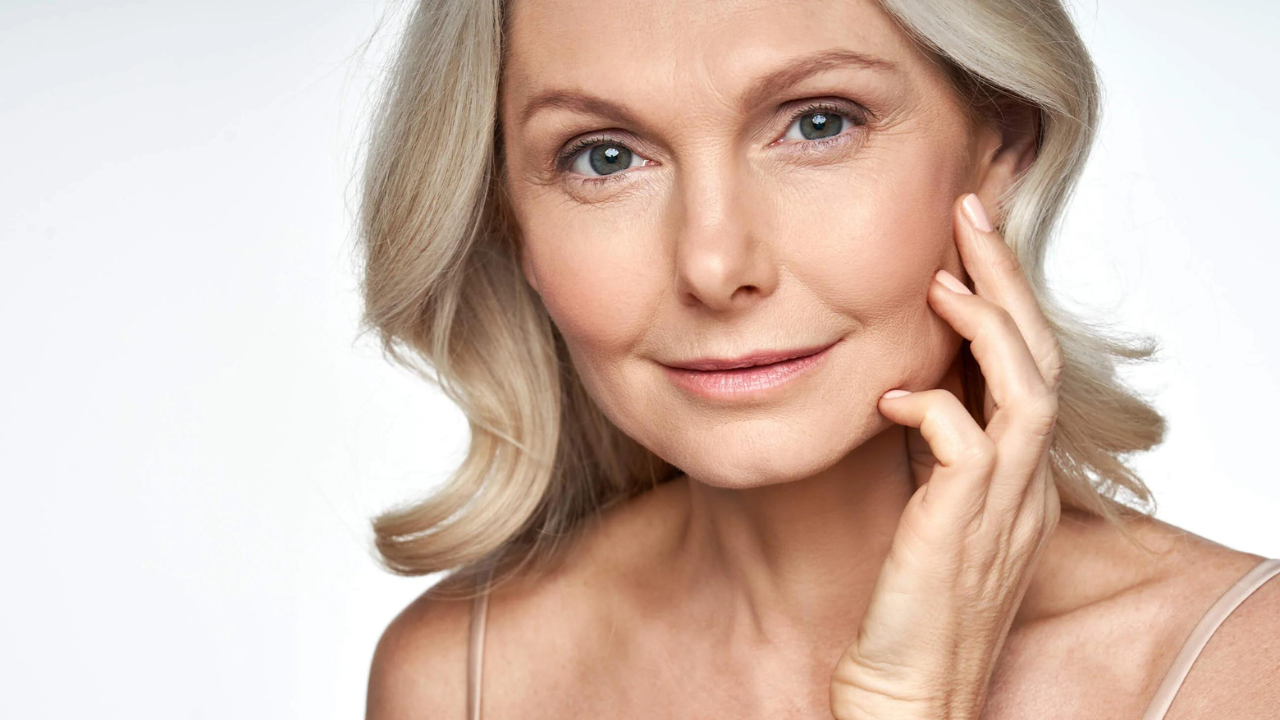This is the best age to start taking collagen, according to skincare experts
It's younger than you think!


In today’s skincare world, ‘hyaluronic’ this and ‘micellar’ that means it can be difficult to know what a good quality skincare routine truly involves. Whether your latest purchase has been a moisturiser, eye cream or facial cleansing brush, skincare trends seem to change without warning, leaving many people unsure of what to buy or where to start. There is however one skincare must have that has been around for yonks, and that's collagen.
Recently, searches for ‘benefits of collagen’ have risen by a staggering 300% in the past 12 months. It's anti-ageing benefits means that many people are wanting to find out how it works and where to get some, but don't worry, we've done the hard work for you. We've spoken to Absolute Collagen who have shared everything you need to know when it comes to collagen and how it can combat the appearance of ageing.
Oh before we begin, did you know that your workout could be affecting your skin? Have a read why for more information!
What is collagen?
Collagen is a protein produced by the body that is found in almost every part of it, from your nails and hair to your organs and joints.
Collagen is a major component of our ligaments and connective tissue, as well as having wound healing and skin-boosting properties, helping to reduce the appearance of wrinkles, improve overall skin texture and bring a youthful glow.
At what age does collagen production decrease?
Your body produces collagen from birth, with the levels gradually increasing until they peak when you are around 20-25 years old. Then, you begin to produce less and less collagen from 25 onwards, which is why wrinkles and fine lines might start to appear as you approach 30.
At the age of 50, the decrease in collagen levels accelerates further, marking the beginning of perimenopause. This is often when people consider adding collagen to their skincare routine or begin taking collagen supplements.
Get all the latest news, reviews, deals and buying guides on gorgeous tech, home and active products from the T3 experts
Despite being a natural part of getting older, there are other lifestyle factors that can speed up the deterioration of the collagen and other proteins in your body. Exposure to UV rays (read why you should use sunscreen daily for healthier skin to find out more!), smoking, drinking alcohol, stress and even pollution in the air can all have a long-term impact on collagen depletion.
How does collagen depletion impact your skin?
While there are several effects of diminishing collagen production, the most noticeable, and often talked about, is the reduced elasticity of the skin.
This can be particularly prominent in areas where you have delicate skin, such as around the eyes and mouth where creases may start to appear. Fine lines will also begin to form by the edge of your nose and your jawline might start to subtly lose definition or sag.
Any scarring on the skin - from acne, injury or otherwise - also tends to become more apparent, as the body doesn't have the same ability to repair.
How can you boost your collagen production?
There are various ways to boost collagen production, such as eating collagen-rich foods, limiting smoking and alcohol consumption, leading a low stress lifestyle, and by taking collagen supplements.
Foods such as fish, chicken and bone broth all contain small amounts of collagen. There are also foods that contain ingredients that are necessary for collagen production but do not contain any collagen themselves. For example, citrus fruits and berries are all rich in Vitamin C which is essential for collagen production, while egg whites contain proline, one of the essential amino acids necessary for collagen production.
Collagen drinks or liquid collagen supplements are another way to reintroduce extra collagen into the body. In fact, a recent Absolute Collagen study of 130 subjects found that the skin elasticity of those taking the liquid supplement improved by 60% after just 12 weeks.
When should you start taking collagen?
The good news is that it is never too late to start taking collagen supplements. To gain the maximum benefit, you might want to consider taking collagen supplements in your 20s to minimise the subtle, early signs of ageing before they appear.
However, many people look to up their anti-ageing skincare routine throughout their 40s, 50s, and beyond to ensure collagen levels are maintained. This will help combat the more noticeable signs of ageing, helping to reduce the appearance of under eye creases and enhance the skin’s elasticity, along with stronger hair and nails.
Found that helpful? Read this essential summer skincare routine in 3 simple steps.

Lizzie is T3's Home Living Staff Writer, covering the latest in smart home, lifestyle and beauty tech. From skincare gadgets to vacuum cleaners, she's your go-to for trends and top recommendations.
When not writing, Lizzie enjoys mooching around Bath, spending time with loved ones, or testing her review units – often during an enthusiastic cleaning spree!